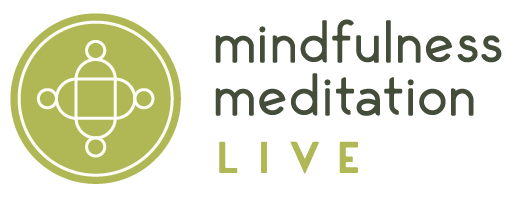Interpersonal Mindfulness… or how to bridge the gap
Have you ever noticed that even when your formal meditation practice is going well, you can hit the skids when it is time to communicate with others? Interacting with others is often such a test of our equanimity!
Many of us are venturing out after long months of a pandemic, and significantly reduced social contact. This is hard! Are you looking for a practice that helps to navigate the “new normal” with friends, family, neighbors, or co-workers?
Elaine Retholtz, guest blogger and Certified MBSR Teacher, shares her experience of the transformation nature of interpersonal mindfulness. Below, she describes how developing such a practice helps us be more fully present with others and with ourselves.
The shift away from “back of the head” practice
I don’t know what your experience has been - but when I came to meditation over 30 years ago, the practice was presented to me as an individualistic, solitary pursuit. A friend of mine refers to this as “back of the head practice”: that is, whether at a retreat center or at your local meditation center, you sit behind someone for a period of time, (perhaps an evening sit or a day long or a week long retreat), and then when it is over, you go home, having hardly (if at all!) said anything to your co-meditators. In the beginning, it sometimes felt to me that the messiness of interpersonal relationships was “interrupting” my practice.
However, when I began to realize that nothing needs to be excluded from my practice, the entire world opened to me. A strong support in learning how to bring mindfulness and compassion to all our relational encounters is the Interpersonal Mindfulness Program (IMP).
The Interpersonal Mindfulness Program
The Interpersonal Mindfulness Program was developed jointly by Florence Meleo-Meyer while she was at the Center for Mindfulness at the University of Massachusetts Medical School (now at the Mindfulness Center at Brown University), Phyllis Hicks of the Metta Foundation, and Gregory Kramer, who developed the Insight Dialogue practice upon which the course is based.
Like MBSR, it is an 8-week program, two and a half hours a week, with an all-day class in the middle. The bulk of the class time is spent in dyads, using the Insight Dialogue Guidelines while engaging in contemplations about shared aspects of human experience.
This program was specifically designed for graduates of MBSR / MBCT programs, but is suitable for anyone with a mindfulness practice who is willing to experience stepping out of silent practice and applying mindfulness to human interactions.
I have been amazed at the connections and depth of reflection and insight that develop in this course, and that is why I keep offering them. One participant told me that she has been “much more patient and less reactive with family members, especially my young son and my husband. At work I’ve been able to be more open minded, which seems to fuel creative problem-solving.” Another participant shared the power of learning to pause in human interactions: “… pausing is so essential with parenting; relaxing, opening, and listening deeply is what my kids need from me as their mom. My family thanks you, and so do I.”
Hell is not other people, believe it or not
For many of you on the introverted side, the idea of being in dyads for an 8 week course might sound very daunting, even off-putting. Famously, the French philosopher Sartre wrote “Hell is other people.” In a year of extreme polarization, such a declaration might seem to hold truth for many of us. But it misses the deeper wellspring of connection and potential. One participant told me: “Each week has been an amazing rediscovery of the commonality of the human experience.”
So much is lost of we don’t (re)learn to connect authentically beyond our disembodied social media avatars. We might even be able to connect with people we find difficult. “These last weeks I have remembered how much I find people such wonders - odd, funny, difficult, beautiful, mean, generous - me included. This program has reminded me how I love it all and want to be a part of it.”
Interpersonal Mindfulness reconnects us with a certain vitality and joy in the shared human experience, in this business of being alive in our times. It can also hold complexities, subtleties and wordless yearnings that are often lost in electronic communications.
In essence, it’s a pathway to regaining our precious humanity — our own and that of others.
----
More information about Elaine’s upcoming Interpersonal Mindfulness Program, starting on February 9th, can be found here. You can read more testimonials here.
© MML Editorial Team, 2021

